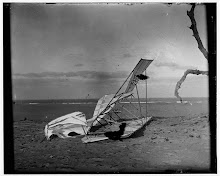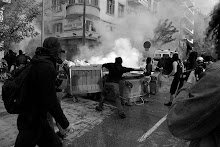Published in Insurrection Issue three, 1985
There has been reference in some anarchist papers recently to the 'struggle for amnesty' taking place by prisoners in Italy. Even without knowing much of what has been happening there in recent years, it doesn't take much reflection to see there is a contradiction in terms here. A 'struggle' for amnesty is at best a contra-diction, in its true light it is one of the latest swindles by the repressive apparatus of the Italian State, requiring the complicity of a large part of what was once its contestant (at least in its present form) Both inside and outside the prison walls. Hence the rivers of words, theories, justifications and platitudes, amounting to no more than a fairly generalised 'throwing in the towel'. 'The War is over', and the same laws that churned out life sentences and allowed for the release of vile traitors and grasses, are now sanctioning amnesty. The order is: continue the struggle with other means. The ones used till now have made too much noise. Abandon everything. Put aside the class struggle. Abandon the revolution.
First the appearance of the pentiti who abandoned the struggle on a military and political level, passing over to the side of the State and personally taking on the task of strangling all further forms of resistance, resulting in the assassination of four Red Brigades comrades in Genova in 1980 and the arrest of hundreds of com-rades since. Now the appearance of those affirming 'desertion'. In May 1980 a collective document drawn up by the supporters of the desertion thesis, nearly all ex-Prima Linea, among whom Donat Cattin and Gai, was published by Lotta Continua. This first group of deserters was short-lived. Many of them ended up with a very fine line between themselves and the pentiti, and almost all of them ended up collaborating with the judiciary.
In September 1982, a document appeared known as that of the 51 (the number of signatories) drawing up a way of taking a distance from the struggle; dis-association, proposals for pacification, amnesty, etc.
Those who signed this document, mainly from the autonomy area, maintain that combatant positions be condemned, opening the way to a dialectic with the State. Negri, Ferrari, Bravo, Vesce and others say it is necessary to criticise the past radical antagonism and immerse themselves in a dialectic relationship with the 'healthy' social and political forces. In this way (they maintain) the State will also find itself forced into self-criticism. New conditions of the political clash will lead not to radical dissent or total opposition, but to dialectic and increased discussion, with the aim of stimulating the State to increasingly democratise itself. In this way the area of disassociation has developed and contains various positions.
One of these positions is that of Scalzone and other refugees in France. They maintain there should be a great mobilisation to impose a battle for amnesty for all political prisoners. An armistice has to be drawn up with the State, and the two sides are to bargain over the price of the movement's defeat.
Another area born within the prisons is that of the so-called decarcerisation (release of prisoners). Its supporters refuse to subscribe to disassociation, but see the need to find other roads to social transformation, passing through pacifist and ecological struggles to a better 'quality of life'. In their situation as prisoners they want to begin a politico-cultural struggle aimed at reducing the negative effects of segregation. This area are calling for conferences, demonstrations, concerts, exhibitions, production and cultural coops, with the aim of creating social structures that are 'alternatives to prison', in a perspective allowing a passage from the dreamed of political revolution to social transformation. This area is rapidly approaching that of the true disassociated and constitutes the so-called homogen-eous area. They organised a conference in Rebibbia prison in Rome last May in which 30prisoners participated.
Many ex-militants of Prima Linea have taken a road leading to positions of disassociation. Instead of pacification they speak of reconciliation, concluding that conditions in Italy today do not consent the use of armed struggle.
The 'continuist' nucleus of the Red Brigades (e.g. Curcio) are enclosed in an unreal irreducibility, insisting on the need for the constitution of the Combatant Communist Party. They have highlighted the limitations and defects of armed struggle and the organisations that have practiced it over the past years. They say it is possible to use revolutionary violence but that it has not managed to unite all the expressions of the proletariat over the past years. A critique has been made of those who lived and still live the myth of the Red Brigades as monolithic armed vanguard. So the concept of the party in the third-internationalist sense has fallen, giving way to the conception of a guerrilla attacking proletarian contradictions from within. In December 1983 they began a hunger strike in the prison of Nuoro against prison conditions. They have since instored a relationship with the catholic church, recognising it in the role of prisoners' defence.
There also exists, however, a considerable number of comrades who criticise political solutions. They support the need for taking up the struggle again, both inside and outside the prisons and seeing the problem of prison within the whole perspective of liberation from the capitalist system.
Sunday 25 July 2010
Subscribe to:
Posts (Atom)



